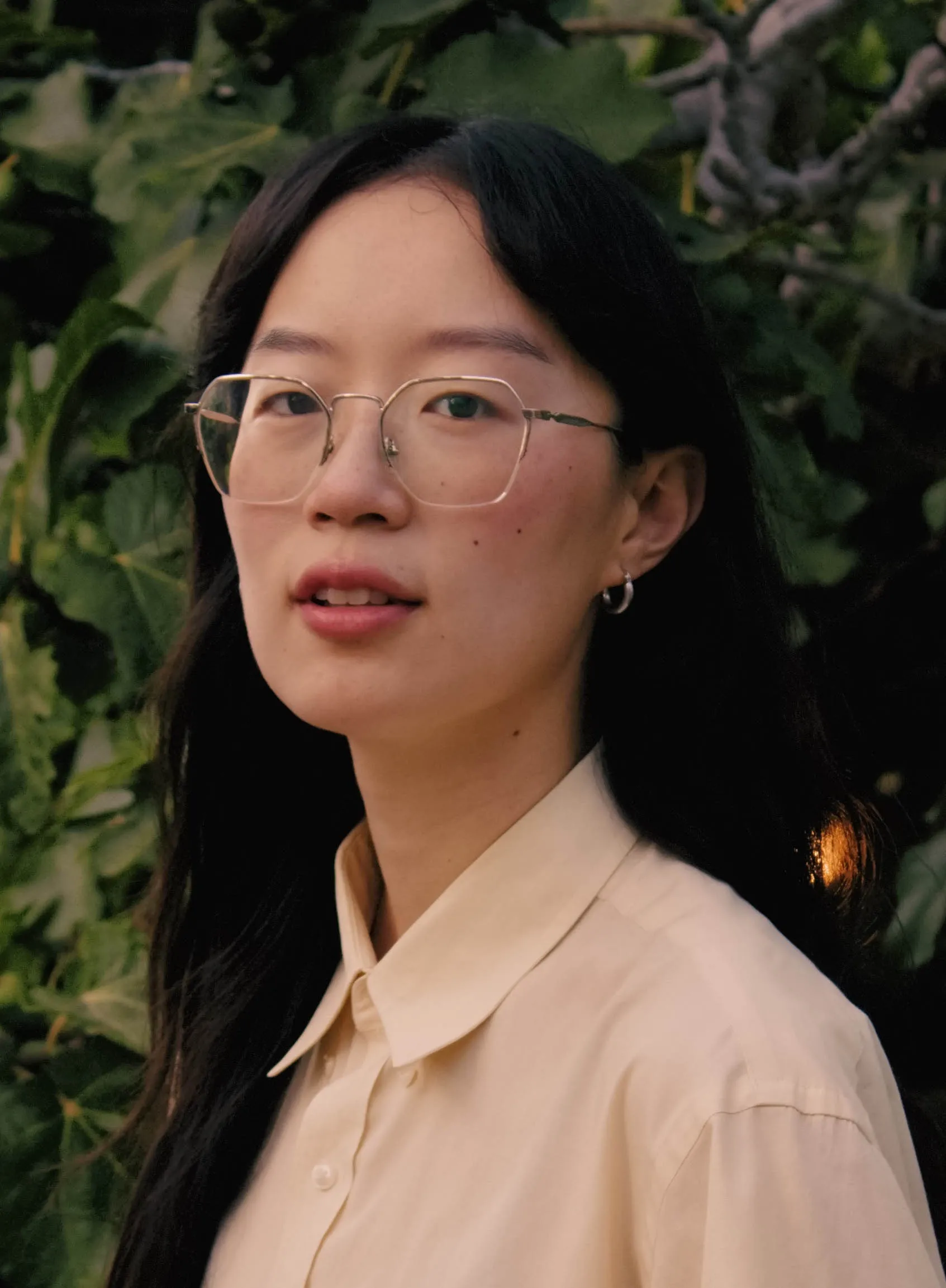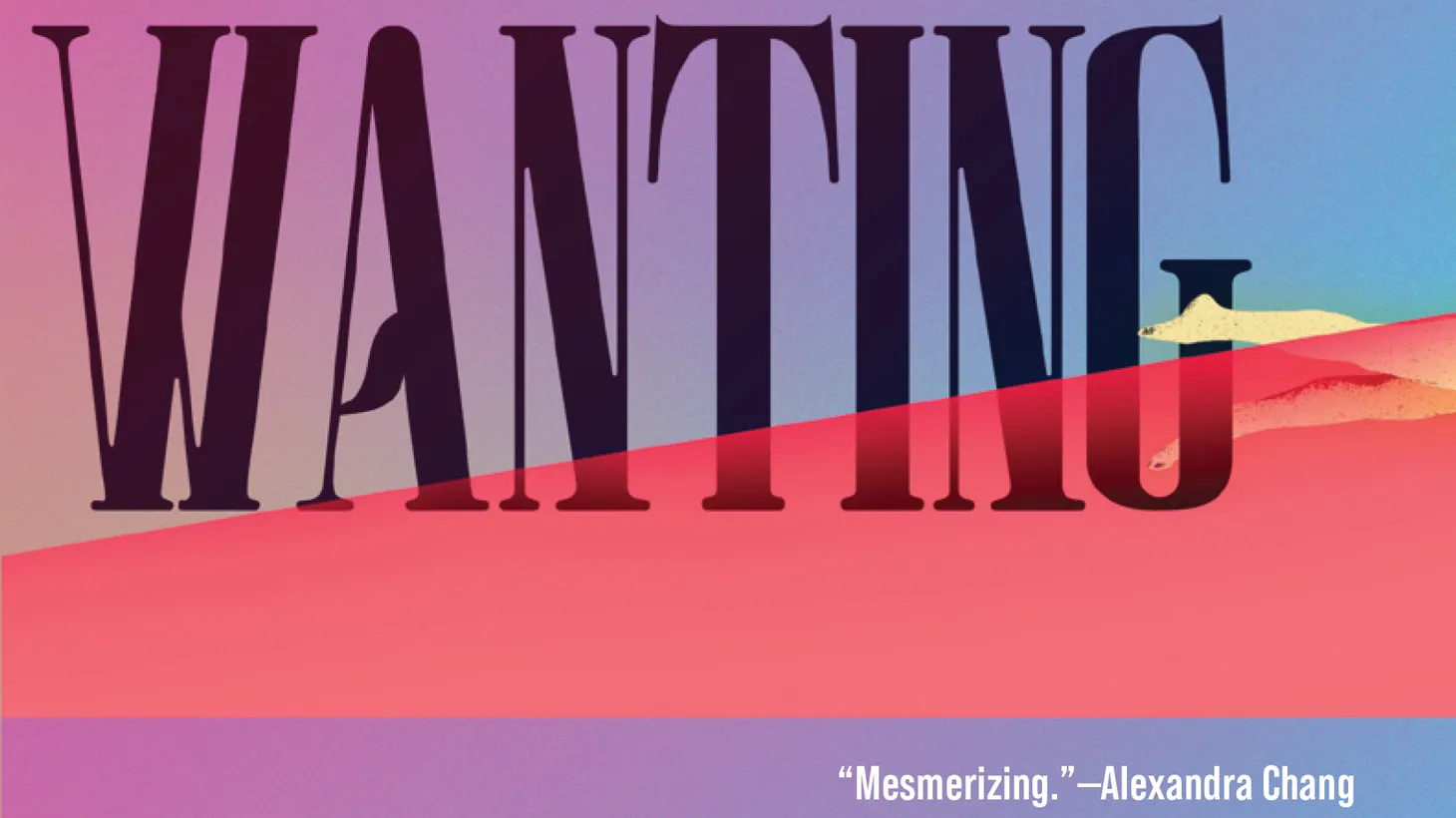The U.S.-China relationship is about more than tariffs and geopolitics. For the Chinese characters in Claire Jia’s new novel Wanting, the U.S. is a source of their wildest dreams and most enduring disappointments. Luo Wenyu returns to China after living in California for a decade, reuniting with her childhood friend Ye Lian, who never left their native land. Meanwhile, a middle-aged couple’s once-promising futures in the U.S. never came to fruition. Other Chinese urbanites are also living an outdated American Dream — or bourgeois nightmare.
Author Claire Jia tells KCRW that many people want things because others want them — without questioning whether that desire is internal.
“So many things in our society are given value just because we’ve all decided that this is actually what makes a good life, like settling down with a partner that you find in your 20s and then building a life together. … But I feel like I certainly, throughout the course of my 20s, have wondered: Is this really what I want?” she says.
The book opens with the story of Lian and Wenyu, who meet in primary school in Beijing. Lian yearns to go to the U.S. because she hears all successful people go there. Wenyu isn’t a good student and casts away anything traditional, and she only entertains Lian’s American Dream but isn’t serious about it for herself. However, Wenyu ends up being the one to leave for America — because her grades aren’t good enough to qualify for a Chinese university. Lian doesn’t get accepted into any American colleges either.
“Both these women spend the next 12 years living these lives that they feel was never meant for them. And they both commit to the lives that they have been dealt,” Jia says.
Lian attends a Beijing college, lands a great job, meets a nice partner, and builds a comfortable life there. Meanwhile, Wenyu commits to the American Dream, becomes a glamorous YouTube influencer, and gets engaged to a wealthy man. When she returns to Beijing to throw her engagement party, “Lian sees her life and realizes, ‘Oh, I actually do still want what you have. And what you now have is better than what I have, and that’s causing me to question all the comfortable choices that I’ve made in my life over the last 12 years,’” Jia says.
The two have a conventional friendship of jealousy and comparison, she says, but it also means they can both strive for something together. “That is something that is so salient when you’re young, but then as you get older, it becomes less of a presence in your life. And both these characters know this and are holding onto that, and they mutually begin to question their romantic relationships and seek out excitement elsewhere. And they stir up some questions in each other.”

Claire Jia is the author of “Wanting.” Credit: Joe Abriatas.
The second part of the book focuses on a middle-aged couple, Chen and Fan, who met in the U.S. as foreign students decades ago, then moved back to China.
Jia says Chen was among the first characters she wanted to write in the novel, which she began working on more than 10 years ago. And though the book went through many changes, the point-of-view characters have always been Lian and Chen.
“I’ve always been drawn to these two people as people who are very frustrated with their lot in life, even though outsiders might feel that they actually have a very good life. And they’re people who feel that they can never be the kind of person that they need to be to achieve what they want. They always feel that other people have that personality, and they’re just inherently not the kind of people that can achieve their dreams.”
No character in the book becomes “crazy rich,” Jia says. Chen makes a decent living by building homes, and unlike his friends, he doesn’t own big businesses and multiple properties worldwide.
“I just feel like China is such a place of division. I’ve seen the poorest people and the richest people that I’ve ever seen in China, especially for a place that supposedly touts such equality. And it’s a very shocking thing to see. And I always wanted to write about … that promise of wealth that is not possible for so many people.”
Jia says that Chen represents her parents’ generation. She points out that many stories are about immigrants who succeed in America. “But then what about the immigrants that ‘didn’t or failed?’ And what does that look like? And is that really failure? … And I’m trying to turn that narrative on its head — that returning to China is not a failure.”
Both the U.S. and China are places where vast promises are made but not kept, Jia says, and urban residents in their 20s and 30s have the same conversations centered on real estate and future spouses. Plus, the answer to whether a better future lies in China or the U.S. constantly shifts.
“One thing that I’ve learned as I’ve grown older and as I’ve written this novel is that the older I get, the less I know. And I am possibly less certain about what I want my life to look like now than I was 10 years ago. And maybe that is the growing.”

